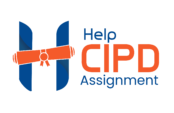The CIPD Level 5 unit on using facilitation skills offers a unique set of skills in learning and development and diverse knowledge of different facilitation techniques in different professional contexts. For managers in different types of organisations, facilitation skills have become increasingly important. For example, facilitating a focus group, a team, or a research project requires these skills. Students will be taught how to organise and manage a facilitation process to succeed in this course.
Suitability
This unit is suitable for individuals who plan to pursue careers in human resource management and leadership. Professionals interested in learning more about facilitation models should enrol in this unit. The unit can benefit HR and L&D professionals by providing an understanding of different facilitation tools and techniques. Individuals interested in developing their facilitation skills within an organisation or business setting should enrol in this unit. Facilitation skills are essential regardless of whether a person is in a leadership position, such as leading a small organisational team, a focus group, or a research project. Therefore, those who have completed the unit are more likely to facilitate meetings and planning events.
Unit Objectives
Unit objectives include:
- Understanding the nature of facilitation and the principles of effective facilitation
- To discuss various facilitation techniques and models
- To provide students with the opportunity to apply different facilitation techniques to different business and learning contexts.
- Identifying what your facilitation skills are and where you need to improve.
Unit Content
It contains many valuable lessons aimed at creating an effective facilitator. The unit objectives will determine the unit content. The lessons will be simplified from the objectives to enable the students to understand and apply what they learn. The lesson will focus on the nature and principles of effective facilitation. The concept of facilitation will be discussed in this lesson. In this section, terms like facilitator and facilitation will be defined. Participants in this lesson will gain a broader understanding of what facilitation is expected to accomplish.
The unit will also cover the importance of facilitation skills in business and learning environments. Facilitation skills play a vital role in strategic planning, project management, team building, and dealing with dysfunctional behaviour in an organisation. As students learn in the learning environment, facilitation skills are crucial to experiential methodologies, critical reflections, and in-person discussion. Another essential lesson for effective facilitation will be covered in the module. In addition to respect, goal-oriented approach, acceptance, trust, and caring, there is empathy.
As a result of the second objective, students will learn about different facilitation models. Among the models discussed are Carl Rogers’ humanistic model, John Heron’s six-category intervention model, Philip Burnard’s model, and Casey, Roberts and Salaman’s model. Additionally, students will be taught facilitation techniques and the facilitation process. Discussions on round-table discussions, knowledge cafés, and customer windows, among others, will be detailed. This lesson focuses on managing dysfunctional and disruptive behaviours in a group. During the lessons, real-life examples of each tool, technique, and model will be given or researched.
The unit also includes a practical learning component in which students will demonstrate different facilitation techniques and skills. Students will gain a greater sense of when and how their theoretical knowledge can be applied in practice during this lesson. Students will also have the opportunity to assess their facilitation skills during this lesson. Finally, students must reflect on their areas of weakness. Several models of reflective practice will be used, including Schon, Johns’ model of structured reflection, Boud, Keogh, and Walker’s six stages of Gibbs’ reflective cycle..
Both human resource management and learning and development require facilitation skills. Thus, the unit’s lessons provide scenarios for students to apply their knowledge in a small group setting. Understanding what is expected from an effective facilitator is best achieved by reviewing case studies to identify their strengths and weaknesses. Therefore, the unit focuses primarily on core values, dynamic techniques, and practical facilitation techniques.
Expected Learning Outcome
Learners are expected to clearly understand the nature of facilitation and the principles of effective and efficient facilitation by the end of the module. In addition to analysing and discussing different facilitation models theoretically and in practice, students should also understand the processes used in training. Students who complete the course will have the ability to apply facilitation techniques to different business contexts and achieve the desired results. At the end of the unit, students should evaluate their facilitation skills, identify strengths and weaknesses, and develop ideas to improve their weak areas. Learners should be able to plan and prepare for facilitating events and meet the needs of participants.
Summary and assessment
This unit will be covered in 60 hours. In addition to lectures and group discussions, 30 hours are devoted to direct learning. The remaining 30 hours will be spent on self-directed learning, evaluations, and research. A 2500-4000 word essay is usually required to assess the unit. The level 5 essay should demonstrate awareness of the facilitation skills concept and demonstrate critical thinking. To achieve this unit, learners must demonstrate that they have met all the learning outcomes and assessment criteria.
Using facilitation skills provides facilitators with a solid foundation to work with different groups by exploring techniques and frameworks of facilitation. When a facilitator knows using facilitation skills, it boosts their confidence and allows them to utilise different styles and techniques while facilitating. Good facilitators and excellent facilitators differ primarily in their level of training and experience.



